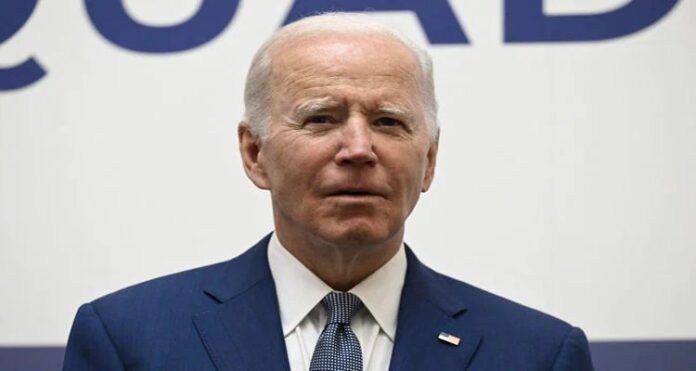| Translate This News In |
|---|
From promising to militarily defend Taiwan to implying regime change in Russia, US President Joe Biden has a knack for making off-the-cuff remarks that have rattled diplomacy. It’s almost routine for journalists following Biden around the world: the frank-speaking US president making news with a loaded or brusque response, and the White House quickly insisting he’s not setting new policy.
In the closing moments of a news conference in Tokyo on Monday, Biden stated unequivocally that the US would defend Taiwan militarily if it was attacked by China, which claims the self-governing democratic institutions as its own.
It was not the first time Biden made headlines in Taiwan with a formulation. For more than four decades, the United States has provided the island with weapons for self-defense while remaining deliberately ambiguous about whether it will intervene.
Both a White House official and Secretary Of defense Lloyd Austin quickly stated that US policy had not changed, as Beijing expressed outrage and Taiwan applauded what it saw as evidence of unwavering commitment.
The incident occurred two months after Biden remarked about Russian President Vladimir Putin in a speech in Poland, “For God’s sake, this man cannot remain in power.”
The White House quickly denied that Biden was advocating Putin’s removal, which would be a significant escalation of the US campaign, which Biden himself had stated was limited to supporting Ukraine.
Before Putin decided to invade Ukraine in February, Biden, who had previously warned of dire consequences if Russia launched an attack, also raised eyebrows by suggesting a softer Western response for a “minor” incident.
However, Biden, who has been known throughout his political career for wearing his emotional responses on his sleeve and has limited the possibilities at home for verbal blunders, occasionally digs in.
Biden has steadfastly accused Russia of “genocide” in Ukraine, accusing Moscow of “war crimes” long before the rest of his administration.
‘Two-level game,’ you say?
Biden’s remarks always elicit questions. Is the 79-year-old just speaking his mind? Is he establishing a new policy, or perhaps testing one?
“It’s difficult to tell whether these are mistakes or a two-level game. However, if it is a two-level game, it is extremely dangerous “Boston University associate professor of international affairs Joshua Shifrinson
“It has the potential to exacerbate tensions and create uncertainty,” he added.
Biden came into office with more foreign policy experience than any president in decades, and he promised more predictive ability than his voluble and volatile predecessor, Donald Trump.
Trump frequently astounded the world with his undiplomatic proclamations, ranging from insulting allied leaders to threatening war on Twitter.
“With Trump, there was no predictability,” Shifrinson said, “but Biden was anticipated to be the very consistent type of guy.”
“Bluntness can be a very good thing, but it can also be quite dangerous in a situation like Taiwan.”
According to Bonnie Glaser, a Taiwan expert at the German Marshall Financing of the United States, Biden undoubtedly believed what he was saying.
“But it is a gaffe in the context that he misstates US policy,” she explained.
“I don’t believe it serves US preferences for the president to misstate our policy,” she added.


















